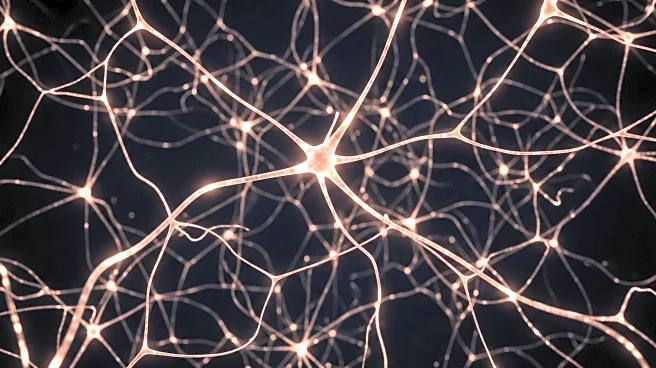What's Happening?
Research from Yale School of Medicine has uncovered how the hippocampus, the brain's GPS, uses cognitive maps to navigate new environments. The study, published in Nature Communications, shows that neural activity in the hippocampus 'flickers' between remembered maps and the current environment, allowing for flexible navigation. This process was observed in rats navigating a maze, where their brains prepared for novel detours before encountering them, demonstrating rapid learning and adaptation.
Why It's Important?
Understanding the brain's navigation mechanisms has profound implications for neuroscience and psychology. This research highlights the brain's ability to adapt to new situations, which is crucial for learning and memory. It also provides insights into conditions like PTSD, where the brain's navigation systems may malfunction, leading to intrusive memories. The findings could inform therapeutic approaches for mental health disorders and enhance our understanding of cognitive processes.
What's Next?
Further research may explore how these findings can be applied to human cognitive processes and mental health treatments. The study opens avenues for investigating how cognitive maps are formed and modified, potentially leading to advancements in treating neurological disorders. Researchers may also examine how these mechanisms influence decision-making and problem-solving in complex environments.
Beyond the Headlines
The study's implications extend to artificial intelligence and robotics, where understanding human navigation can inform the development of systems that mimic human cognitive processes. This could lead to more intuitive AI systems capable of navigating complex environments and adapting to new challenges.











